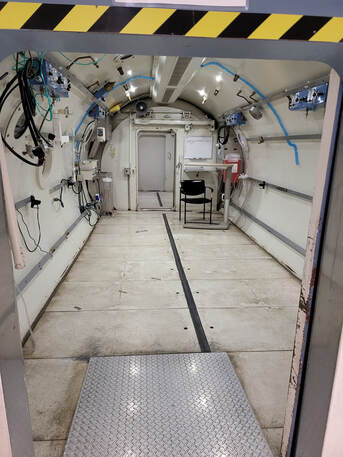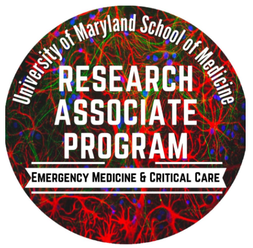
Changes to Blood Microparticles in Patients with Carbon Monoxide Toxicity
Patients who are transferred to the University of Maryland Medical Center due to carbon monoxide poisoning often receive hyperbaric oxygen treatment as a first-line therapy. Researchers and physicians at the UMMC Shock Trauma Center have partnered with RAP-EMCC to collect blood samples from CO patients to analyze for certain blood micro particles that could serve as predictors of hypoxia.
The purpose of this study is to detect how micro particles in patients' blood that are potential indicators of hypoxia change with hyperbaric oxygen treatment, the first line of care for patients at UMMC. We aim to collect blood samples from patients directly before their hyperbaric oxygen therapy, as well as directly after hyperbaric oxygen treatment.
This is to detect how levels of different hypoxic micro particles in the blood will change with HBO treatment.
As our members have only become active in assisting with this study in September 2022, we hope to expand RAP-EMCC's role in CO poisoning patient enrollment in the future as well as expand the study protocol to follow up with enrolled patients as well.
Patients who are transferred to the University of Maryland Medical Center due to carbon monoxide poisoning often receive hyperbaric oxygen treatment as a first-line therapy. Researchers and physicians at the UMMC Shock Trauma Center have partnered with RAP-EMCC to collect blood samples from CO patients to analyze for certain blood micro particles that could serve as predictors of hypoxia.
The purpose of this study is to detect how micro particles in patients' blood that are potential indicators of hypoxia change with hyperbaric oxygen treatment, the first line of care for patients at UMMC. We aim to collect blood samples from patients directly before their hyperbaric oxygen therapy, as well as directly after hyperbaric oxygen treatment.
This is to detect how levels of different hypoxic micro particles in the blood will change with HBO treatment.
As our members have only become active in assisting with this study in September 2022, we hope to expand RAP-EMCC's role in CO poisoning patient enrollment in the future as well as expand the study protocol to follow up with enrolled patients as well.
